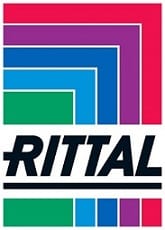
Cultural Change in the Far East
The Chinese Rittal subsidiary was able to significantly increase its key production figures by introducing Lean Transformation. The far- reaching change process is attributed to a successful cultural transformation.
Rittal GmbH & Co. KG is a manufacturer and system provider for enclosures, power distribution, climate control and IT infrastructure. With around 9,700 people under its employ at eight production sites and 58 subsidiaries around the world, Rittal is considered a hidden champion in the industry.
Rittal began expanding into Eastern Europe and Asia in 1993. Since then, the Chinese site in Songjiang, Shanghai has established itself as a key manufacturing facility, currently with a staff of around 1,000 employees. The plant is home to production of both large and compact enclosures for air conditioning units, control cabinets and IT infrastructure.

INITIAL SITUATION
As part of an audit, Rittal identified deviations and anomalies in the Chinese plant in the mid-2010s.
To leverage the untapped potential in manufacturing, Michael Galler, now Vice President of Operations at Rittal China, began the transformation toward Lean in 2016. The first independently initiated measures did bring about positive change, however not quite to the extent desired.
Together with the Staufen consultants, the Lean project managers developed a concept and divided the project into two blocks:
Rittal was responsible for the implementation of the sub-projects in the first block, while the second block was carried out under the direction of Staufen:
Shop Floor Management (SFM) and Hancho, qualification of the team leader level. All project participants identified the most urgent need for action in Shop Floor Management.
Results
Key corporate performance indicators (KPI) prove how successful SFM changes and the underlying Lean Transformation have been.
In the global Rittal system, there are 13 KPI target markers, of which the Chinese subsidiary achieved significant improvements in twelve and at least slight improvements in one.
Among other things, the following successes were reported:
+ 16 %
Productivity
– 30 %
sick leave rate
99 %
delivery reliability

It is a continuous process that has to be anchored in the company so that even without input from me or other senior executives, lean management stays alive.
michael galler,
Vice president operations, rittal electro-mechanical technology (shanghai) co., Ltd
more about Rittal

Process Optimization and Customer Focus: The Path of the Digital Pioneer
Digital pioneers distinguish themselves from other companies in that a chain reaction has triggered their internal digitalization. They did not stop with process optimization and efficiency increases; instead, digitalization has illuminated other areas as well, such as customer focus. As a result, the pioneers orient their processes and products so that they provide their customers with additional added value. Dr. Lars Reinkemeyer, Vice President of Customer Transformation at Celonis, and Frank Krüger, Senior Partner at Staufen AG are responsible for the topic of digitalization. They explain the path of digital pioneers and reveal how other companies can also go down this path.
Read more
Game, set and match
Behind every successful lean transformation is a team and a good coach. Michael Galler, Vice President Operations of the Rittal subsidiary in China, likens this to tennis: “to become a top player, you need a good coach. together with Staufen China as an expert in lean management, the company initiated a far-reaching change process. successfully: Rittal achieved a cultural change and improved all important KPIs.
Read more
Leadership Excellence: Around the world in 480 minutes
Transformation of the economy and society is gaining more and more momentum. The dynamics of change require “effective leadership” from a company’s management – especially in times of rapidly changing conditions. All levels of a company are put to the test: What is being preserved and what needs to be changed to ensure the success of the organization? How can employees get involved in achieving the company’s goals in a climate of cooperation and trust?
Read more

